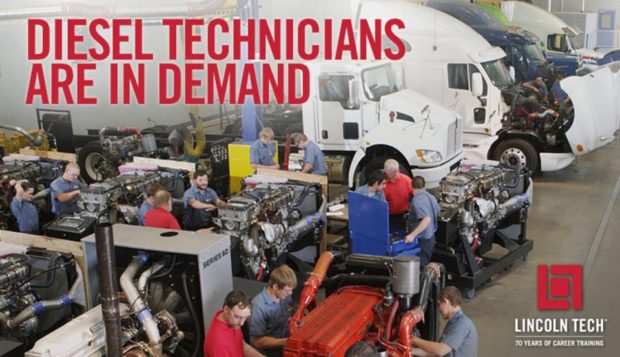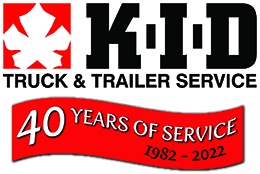
We intensified our focus on recruitment and retention of Truck and Trailer technicians in earnest about a year ago. Maybe that wasn’t soon enough and in hindsight I had no idea it would become our new normal. The talk of attracting and recruiting technicians is a daily conversation.
When we attended a Centennial College Apprentice Open House last Spring, there were nearly a hundred companies there including the TTC who had a bus and was handing out cardboard fold-up vehicles. A man across the aisle from us said that the TTC took the entire graduating class the previous year.
The things that K.I.D. Truck & Trailer Service had going for us is that we’re family owned, work one day shift Monday to Friday from 7:30 am to 4 pm and revamped our website the previous year to focus on who we are with ‘An About Us’ video including customer testimonials. We have a prominent link to a feature page on what Techs/Apprentices can expect from us and what we offer.
My greatest wish is that it was easier to find technicians. There is no low hanging fruit, no quick fix or easy answers. Because of the industry’s short-term focus, we’re not creating a talent pipeline and developing the next generation pool of technical labour.
How did we get here?
Diesel mechanic roles have largely been populated by one generation, the Baby Boomers. Encompassing one of the largest generations ever to be born between the years of 1946 and 1964. The peak birth year was 1957 and those people are now 62 years. Also there are nearly three times as many people choosing a post-secondary education versus entering a trade. The fathers who powered the trucking industry’s service sector for decades are retiring and their sons are not interested in following them into the industry.
For K.I.D., we are located in now the largest material handling market in North America, that means more of the goods we purchase whether in a store or online are being transported by a truck. Medium and heavy duty truck fleets are moving more freight than at any other time in history and the amount of tonnage continues to grow.
Although there has been knowledge that there was a looming skills shortage, now the trend is too big to ignore. It’s part of everyone’s reality. Everyone saw it coming but as industry we didn’t do anything to circumvent it.
Where do we go from here?
Price for service is going to go up. The problem with the shortage of technicians is that is that it adds to the expense of maintaining and repairing trucks. This cost will be passed on to businesses and consumers who rely on truck transportation for the delivery of goods.
The diesel tech shortage is expected to grow. According to a Penske report, by 2024 the transportation industry is projected by 12%, faster than the average of all occupations. There are dire predictions that there will be more open positions than diesel techs working. It’s going to get worse before it gets better because it’s so challenging to attract young people to the field.
We need to educate parents, teachers and high school students that being a technician is a viable occupation. Those rising wages are going to mean better livings without expensive student debt. But what we really need to do is start making these careers appear more desirable. With the diagnostics that come with more computerized trucks a technician spends as much time with a computer as a wrench. A new tractor with an automated transmission could have between 700 to 1,000 fault codes.
Many people talk about the industries that Millennials are killing. There is no getting around the fact that they have different expectations. They want clean, safe working environments, they want to be paid fairly for the work they do, they want to be treated like family and have opportunities for training and advancement.
We’ll need to start early, in junior high school, showing the people who won’t or don’t want to go to college or university, what we have to offer. We need to recruit from those students who like to work with their hands, don’t like spending time in a classroom and want a creative outlet for their skill sets. And that being a diesel technician can be a path to white-collar work. I meet many fleet management professionals and VP of Logistics who started out as 310Ts.
It’s up to all of us in the industry to take up the cause. We need to find a way to promote what our industry has to offer and start taking a longer range approach to the technician shortage.
Tags: centennial college apprentice, trailer repair, trailer technicians, truck & trailer service, truck and trailer repair, truck repair, truck technicians
